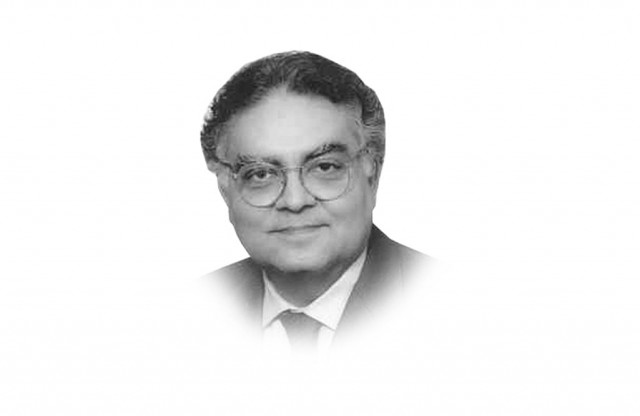Deconstructing the memo
Memo shows civil-military contention in governance reached a point “…where no central control appears to be in place”.

Addressing these questions is necessary for Pakistan’s evolution to democracy. Nevertheless the text of the memorandum has a sub-text which has implications for an understanding of the dynamics of institutional instability in Pakistan. Let us examine the sub-text.
An analysis of Pakistan’s political history indicates incongruence between the formal and actual institutional structure of state power. Thus, while the military is supposed to be subordinate to elected civilian authority under the Constitution, yet it has a pre-eminent position in governance. Policy-making as well as political change are largely shaped by the dialectic of the power struggle between civilian and military factions of the power structure. The memorandum argues that the “tug of war between military and civilian sectors” was enhanced following the Abbottabad raid by US Special Forces. This observation suggests that the civil-military contention in governance had reached a point “…where no central control appears to be in place”.
The intelligence apparatus during the war against the Soviet Union in Afghanistan by the very nature of its enterprise, acquired operational autonomy with respect to its component elements. The organisational structure, ideological orientation and strategic perspective inherited from the earlier period, therefore influenced organisational behaviour in the period after 9/11 when Pakistan’s military establishment was pitted against the very militant groups which it had earlier nurtured.
The memo claims that following the restructuring of the security apparatus with “Washington’s direct intervention”, there would be “an independent inquiry into the allegations that Pakistan harbored and offered assistance to UBL and other senior al Qaeda operatives”. The sub-text of this observation is that there is a possibility that elements within the security establishment may have been complicit, rather than incompetent in handling Osama bin Laden and others. While this is a logical possibility the memo proposes a dangerous path by failing to understand that any “inquiry into the allegations” would have no credibility either within the military establishment or amongst the people of Pakistan if such an inquiry followed US intervention.
The memo proposes that Pakistan’s nuclear assets would be brought under a “…more verifiable, transparent regime”, and cooperation with India undertaken on the issue of the 2008 Mumbai attacks. While such initiatives would be possible if taken by a representative government of a sovereign Pakistan, they would be rejected as treason when undertaken following US intervention into Pakistan.
The fact that such a memorandum was written and communicated to a foreign country shows ignorance of the basic fact that the source of legitimacy of any policy change in Pakistan and indeed its independence is the people of Pakistan. It also shows that the contention between various factions of the power structure may have reached a point where it constrains effective governance and threatens the democratic edifice.
Published in The Express Tribune, November 20th, 2011.














COMMENTS
Comments are moderated and generally will be posted if they are on-topic and not abusive.
For more information, please see our Comments FAQ